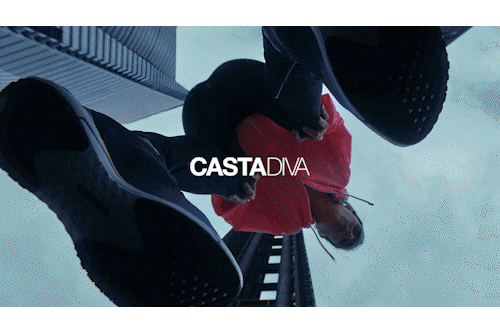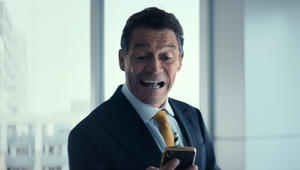
New Talent: Rebecca Strickson, Illustrator

New Talent: Rebecca Strickson / Illustrator / www.rebeccastrickson.com
LBB > So this new section is all about new, up-and-coming talent in the creative industries. As you are just breaking, explain to us who you are and what you do?
RS > My name is Rebecca Strickson. I guess I'm an illustrator by trade, though I also dabble with some design, and generally make objects and mess.
LBB > Your illustrations are very elaborate and are extremely detailed. What inspires you to draw and what is your working process?
RS > I've always drawn, I can’t remember a time when I didn’t. I'm inspired by the female form, by the appreciation of line and the process of creation of that line. My background is Fine Art, not Illustration, so I tend to draw a lot of my inspiration for drawing from there; Pre-Raphaelites, Art Nouveau, Titian... quite a few painters actually…really glorious visual artists. But also I made quite a definite decision to not paint again several years ago. I think that the detail comes from trying to gain order and control in the work – I’m a pretty messy person in real life!
I work predominately in Photoshop on a Wacom tablet at high resolutions - it enables me to work at a high pixel level and really concentrate on the detail. I'll occasionally scan in drawings and work on them, depends on the subject matter. Usually, I’ll create a composite, manipulated image of several drawings and photos, and then work over that to create a final image. It’s a pretty convoluted, drawn out process, but it’s very engrossing and satisfying, and I’m lucky that I tend to work at a very high speed.
LBB > This month you are taking part in “Phantasmagorica” at Forman's Smokehouse Gallery. This exhibition is said to centre around 'the ongoing cycles of sub-cultures and counter cultures, their art, and it’s eventual fuelling of canons of mass assimilation by fashion and media'... Explain the four pieces that you are showing and what instigated their creation?
RS > A specific line caught my eye, further on in the release, which was about showing corporations as monsters. But I thought, “well, our major institutions and the like seem to be doing a fine job of that by themselves”. I decided to show this through a kind of bastardised, stolen language of the traditional allegorical imagery of the Cardinal Virtues. Thus, for instance 'Prudence', traditionally shown with a mirror, a coiled serpent and a book, also has a camera, a pen and a mobile phone. She is re-imagined to represent the Press - which should be prudent, have the ability to reasonably govern and discipline itself and be insightful and knowledgeable. Yet... well, we all know the situation we're currently in. The quote is from AJ Liebling, an American journalist. It just struck me as truer than ever now. I've always been fascinated by Allegory, and in particular Victorian allegorical languages of flowers, and religious symbolism, so it seemed a great excuse to combine that in the work.
LBB > You've been creating illustrations of the UK fast food chain Morley's for the Peckham Space Open Exhibition - an exhibition that only features work that connects to the local area of Peckham. Out of all the objects, buildings, people and spaces within the area, you choose a local fried chicken shop, why?
RS > Ha! I love Morleys! They're specific to south London too - actually, I think there is one in Chingford, oddly, but anyway - fried chicken is a massive part of life down here. It’s cooked by all cultures and eaten by all cultures and loved by masses and to me, it's more popular and revered than God and hence the deliberately religious title - 'The Light of the World'. It’s something that even if you don't personally subscribe to it, you know about it.
LBB > Commercially, you've created and still create work for Soho House Group, Gamemaster Magazine, the ladies only choir Gaggle (which you are also a part of), Department of Transport, Kerrang, Chello/UPC and recently, created T-shirt designs for Topshop Boutique. How do you find work and how do people find you?
RS > I've never looked really hard for work. Some people might call that lucky, but I call it working bloody hard and taking advantages of everything around you. I used to hate the concept of networking, but it’s something you find yourself naturally doing. It sounds a bit Machiavellian, networking, but it’s a necessary evil. I am lucky that I know a lot of people, but I think when you work in and around creative industries like I did before I started freelancing, you just come into contact with them! People tend to find me through friends of friends. Or, in food shops!
LBB > How did you come to be a full-time illustrator? What was your path of progression?
RS > In order: Art college; Goldsmiths; Fine Art; Virgin Records; a London Borough Probation Office; A government quango; Nexus Productions; freelance. A lot of hard work at school erased by no work at university, 5 years of soul searching and then a renewed vigour born of a fear of doing unsuitable, unfulfilling jobs for the rest of my life. I was told by someone once that you can’t make art until you accept you can’t make art anymore, and it took me a while to get there. I probably should have studied Illustration at BA... but hey - I got here eventually.
LBB > Inspiration must come in many different forms. When you work with a brief, do you find it limiting or is it enjoyable to have an end goal and vision for the work?
RS > No, I love it and thrive on it. I need an end goal and limitation or I tend to not know when to stop. I find it more inspiring and exciting than limiting.
LBB > You have a store on Etsy where you sell your own personal projects (www.etsy.com/shop/rebeccastrickson?ref=pr_shop). Can you explain to us the importance of creating your own work, is it profitable and what do you gain (be it financially or personally) that makes it so worthwhile?
RS > It’s a very exciting time to be an illustrator right now. Traditional avenues for the output of illustration are changing, and new media and particularly interactivity are making the market exciting and vibrant. It’s daunting too and there are always a thousand amazing new graduates snapping on your tail, but illustration is a magnanimous pursuit and y'know, there's room for everyone who is good. I can’t shake my Fine Art background totally, and I like to make work that isn’t bound by briefs, and a shop is a good release for that.
You need to be everything these days - your own agent, your own marketplace, your own manager, cheerleader and producer. We can all call ourselves Art Directors, really, as those kinds of barriers are being broken down. It’s just another outlet for your portfolio, in my eyes. It can be profitable financially, but personally I do it just to test what trends seem to be out there. I know people for whom it is much more of a business but I don’t know that I’m going that way just get. It’s popular, and I’ll take advantage of that whilst I can.















